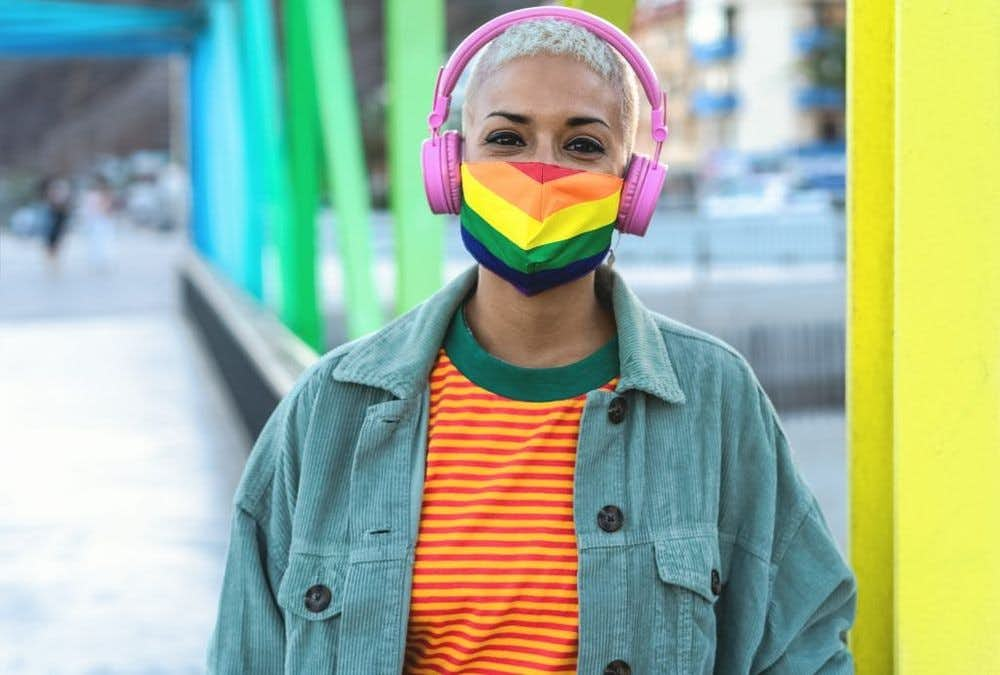July 10th, 2019

While millions of Americans struggle with the reality of mental health conditions– whether they themselves have mental health conditions or their loved ones, the background and identity of an individual can make access to mental health treatment much more difficult.
In many minority communities, mental health problems are increased by less access to care, cultural stigma, and are more likely to use emergency departments (minorities are more likely to reach an extreme point like suicidality, panic attacks, heart attacks, due to mental health issues).
Minorities are less likely to receive diagnosis and treatment for their mental illness, have less access to mental health services, and often receive a poorer quality of mental health care.
Studies suggest that racial minority groups and sexual minority groups show higher levels of anxiety, depression, suicidal tendencies, post-traumatic stress disorder (PTSD), and other mental health disorders. This can be explained by society’s deep-rooted prejudice towards such stigmatized minority groups. In many cases, this causes major feelings of rejection, estrangement, and harassment in these communities.
Despite advances in health equity, disparities in mental health care continue over time. It is also the case that in minority and marginalized communities, mental health is often considered a taboo, a weakness, or something a higher power will heal. For many of these reasons, in 2008, July was named National Minority Mental Health Awareness Month!

While many may assume that this month focuses on the ethnic, cultural, or racial, underrepresented populations of America, this month also includes others who are overlooked when it comes to mental health treatment. This includes but is not limited to religious groups, education levels, refugees, immigrants, and those who identify with the LGBTQ community.
The importance of dedicating the month of July as National Minority Mental Health Awareness Month is that it shines a light on the mental health struggles that are unique to these groups of people. For example, how does a child of undocumented status receive therapy after experiencing trauma? National Minority Mental Health Awareness Month provides both answers and resources to questions like this for those who need help and also spreads information and awareness to those who do not recognize that these kinds of issues exist.
Mental Health America has compiled information on its website to assist various communities:

“From personal experiences as a first-generation, gay, Haitian-American cisgender male, all the intersections of my identities have impacted my journey with anxiety and depression. My experience with these conditions is not a character flaw or weakness--it is simply one of the rich layers of my identity. As an adolescent, acknowledging my own challenges with my mental health was not a part of my culture. It took research and discovering other people with journeys like mine to overcome the stigma and get help. Recovery is absolutely possible with proper treatment.”
- (Jean-Phillipe Regis, 2017)
At Clarity Clinic, we have highly trained staff who specialize in psychotherapy and psychiatry services. To learn more about how we can support your mental health, call Clarity Clinic at (312) 815-9660 or schedule an appointment today.
Resources

Our Services
Virtual/Online CarePHP and IOPAdult PsychiatryChild & Adolescent PsychiatryAdult TherapyChild & Adolescent TherapyCouples CounselingFamily TherapyGroup TherapyPsychological TestingTranscranial Magnetic Stimulation (TMS)Resources
Refer a PatientCareersClinical Training OpportunitiesOur ProvidersFree Mental Health TestsCommonly Prescribed MedicationsLocationsBlogIn The NewsClarity Through CharityClarity for AllQuick Links
Patient PortalFAQsAccepted InsurancesContact us